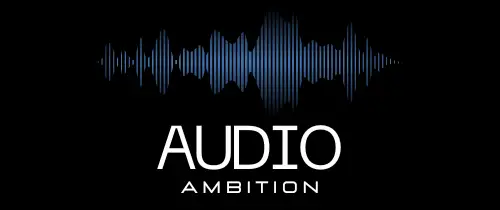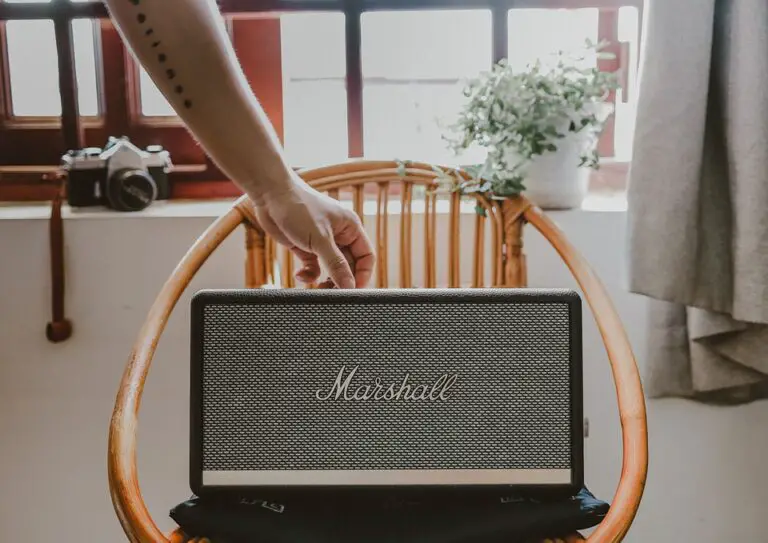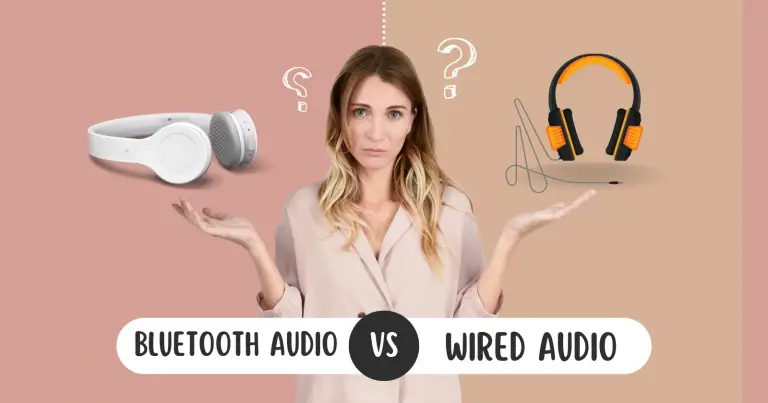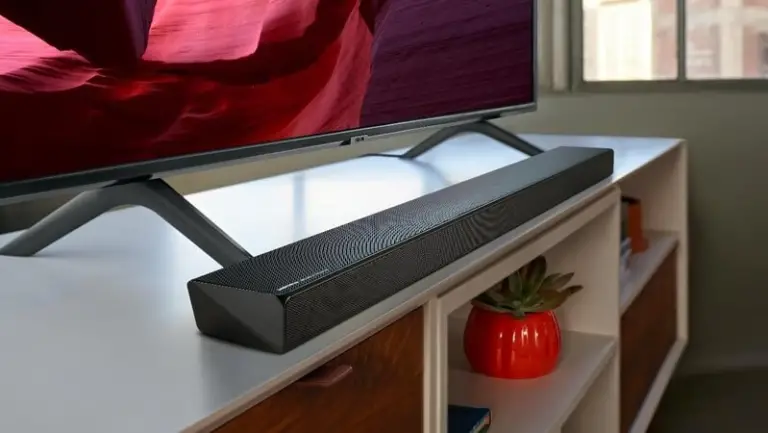Wondering Does Bluetooth Reduce Sound Quality? Bluetooth is designed to connect the headset and phone to produce quality sound that is worth entertaining. Bluetooth helps to drive wireless speakers or soundbar to phone and headset.
It is designed to produce an audio sound for entertainment with bandwidth data and data compression for an audio signal. Read this article, Does Bluetooth Reduce Sound Quality, to learn more.
Does Bluetooth Reduce Sound Quality?
The sound quality that Bluetooth produces solely depends on the code. The magnitude of encoded Bluetooth can determine its capacity to transmit audio signals. The bandwidth and the codec capacity of the data makes many erroneously believe that Bluetooth reduces sound quality.
Bluetooth doesn’t reduce sound quality because it’s designed to transmit encoded audio without affecting any change to the sound quality. Bluetooth is designed to transfer a compressed audio in a certain codec in a device through wireless speakers or headphones that support the codec.
Does Bluetooth Reduce Sound Quality? Here you discover everything about the Bluetooth effect on sound quality.
Why Bluetooth Doesn’t Impact Sound Quality
Bluetooth is a program to run data that are coded. Once the data is coded, Bluetooth doesn’t have an impact on the sound quality.
Bluetooth can only have an impact on the sound that has a database which is not codec. However, the impact is not directly from the Bluetooth, rather it is from the codec.
Before Bluetooth can transfer audio data sound perfectly, the codec has to be compatible with the Bluetooth codec. Incompatible codec from either the audio source or sink can only delay the rate at which Bluetooth takes to transfer audio sound.
Bluetooth works with codec. Outside the codec, Bluetooth lacks the technology to transfer audio sound. When the codec from the source and the sink are the same, then Bluetooth can successfully transmit the encoded data into audio unaltered.
Bluetooth can’t transfer or transmit data that isn’t codec. It doesn’t reduce the sound quality, rather once it can’t read the code, it will not play out sound.
For Bluetooth to efficiently read any data supply to it, choose Bluetooth headphones or speakers based on their technology sound quality.
Bluetooth is rated based on the audio technologies they are compatible with, because the codec doesn’t really make much difference.
How Does a Bluetooth Audio Codec Function?
Does Bluetooth Reduce Sound Quality? How Does a Bluetooth Audio Codec Function? First Bluetooth codec simply means the compressor/decompressor. Codec is the audio technology algorithm that presses audio data into smaller formats.
Audio data is either compressed or decompressed to make the data easier to send over the internet or wireless from phone or computer to headphones.
The codec format makes audio data easy for Bluetooth to transmit the information from source (SRC) to sink (SNK).
Codec is a program that Bluetooth runs to process either large or small audio. Without codec Bluetooth will not transmit or transfer audio data. Codec is an electronic software that Bluetooth connects through wireless format to discharge audio information.
In our convenal world there are popular codecs that Bluetooth runs at. Some of the codecs that process data faster than the traditional codec.
The conventional codec is:
- SBC
- AAC
- aptX
- MP3
These codecs are very important because Bluetooth needs less data to be pressor efficient. The smaller the data it is, the faster and easy for the Bluetooth to deliver or transmit the audio faster.
Using a codec is necessary because the less data Bluetooth needs to transmit, the more reliable the connection is—and the less likely your headphones are to lose the signal in the middle of audio transmission.
Another common name for codec is “lossy”. The codecs are termed because they have the capacity to discard some of the data audio through the process of transferring.
Mostly the codecs are designed to reduce the 1,411-kilobits-per-second data rate of CD-quality audio to 300 kbps.
The discard audio during transmission is very minimal for the human ear to detect such data. However, discarding audio data doesn’t have any impact on the audio processor.
Some Bluetooth codecs decompress higher audio data to produce better sound quality. The decompressor allows the Bluetooth to efficiently process the audio information, while some of the codecs don’t decompress but process directly.
What Does Bluetooth Latency Mean?
Latency is used to measure the time it takes for a specific codec to compress or decompress into an audio sound. Also, latency is the time it takes for a digital signal processor to decode the encoded audio.
It is the lip-sync problem you sometimes experience when watching video or listening to audio. However, it’s sometimes minimal for you to notice such a delay.
Latency takes care of such delay and makes it sufficient for people not to comprehend the delays when listening to audio.
Latency is different among Bluetooth codecs. The higher memory intensity, the lesser the latency when processing audio data. If a codec has higher math and memory-intensive codec, the better for it to process the audio data.
For example, if the AAC codec has more memory-intensive math, the latency will be less and be more efficient at conserving audio data. Hence, it will produce better sound quality.
Latency is technology software built into Bluetooth that also prevents the reduction in the sound quality when transfering audio data.
Latency makes the audio quality remain the same while transmitting through various codecs from source to sink.
Watch this video: Does Bluetooth Reduce Sound Quality
Bluetooth Audio Codecs Aid Transfer
Bluetooth audio codecs are built for transfering audio data without reduction in the sound quality. Each Bluetooth audio codec has different latency and memory-intensive features that determine how fast the data will move from source to sink.
These codecs are found in the devices setting. It enables Bluetooth to decode and encode audio data.
To activa these codecs, you need to visit your device audio setting. Bluetooth audio codecs built to either compress or decompress data for fast processors by Bluetooth.
Let’s study some of the most common Bluetooth audio codecs.
SBC
SBC audio is common among many devices. It’s usually set as the default codec by manufacturers. SBC is commonly set as the default audio codec as the last result when other codecs both the source and sink are not able to process the audio data.
Some of the audio codecs don’t have the capacity to process audio at a high data rate. Once the audio data is higher than the codec, it will not be able to process such data.
SBC codec can run at data rates as high as 345 kilobits per second. When the source and sink devices process audio data at a high rate, the sound quality from such Bluetooth is hardly to disguishing.
Mostly, SBC normally has average latency of 200 – 300 milliseconds. Though this l;atency is big enough to create lip-sync problems when listening to audio or watching video.
MP3
MP3 codec runs between SBC and AAC to produce audio quality sound. The MP3 codec is usually found in Bluetooth devices. However, the MP3 that runs in between SBC and AAC runs differently from each codec but hardly will you discover because the difference is tiny.
If yop devices support MP3, then the Bluetooth will not reduce the sound quality when downloading or streaming services. MP3 are designed to play audio data of large files that are Bluetooth enabled. MP3 produces sound quality when you transfer through Bluetooth.
AAC
AAC is the advanced version of MP3 audio codec. It has the capacity to give better sound quality at data rate than MP3 and SBC.
AAC is normally found in the higher device because this version of Bluetooth is technology balanced to deliver better sound. AAC codec runs at a minimum of latency. It needs a maximum of 250 kbps to make the latency perform low.
Because of technological advancement, SBCs require more time to process audio data faster.
AAC is far better at processing larger audio data in a minimized latency when transmitting or transferring through Bluetooth.
AAC codec is not time demanding compared to most other codecs like the SBC and MP3 when streaming through Bluetooth.
aptX
aptX is commonly found in Qualcomm Bluetooth chips. It differs from the codecs that you found in Bluetooth. In most Bluetooth codecs, audio is specifically encoded to the same level, while in aptX the encoding is of a different level between the audio sample to another.
aptX runs audio data faster and produces low latency. Irrespective of the data, aptX Bluetooth transfers the audio easily.
As a result of the maximum space, Bluetooth works to produce latency of 120 ms, which reduces the possibility of lip-sync error compared to other codecs like SBC and AAC.
Unlike SBC, which may run below its maximum data rate, the data rate for aptX is always 352 kbps.
aptX HD
aptX can process a data rate of 576 kbps because it is the higher version of aptX. This Bluetooth codec is built into a higher version headset to produce quality sound when streaming audio data.
It takes less time to deliver higher audio data with quality sound. The latency is minimal irrespective of the audio data you want to stream.
Conclusion: Does Bluetooth Reduce Sound Quality
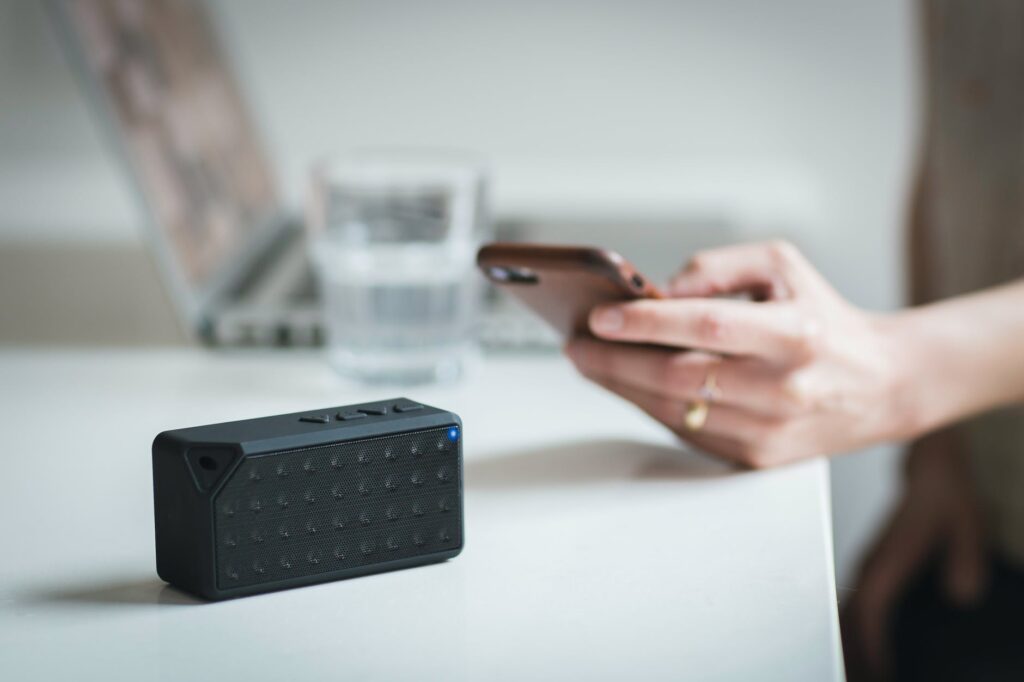
Wondering does Bluetooth reduce sound quality? Streaming or transferring audio data through Bluetooth doesn’t reduce the sound quality, especially when using a higher version of codec Bluetooth. Bluetooth is designed to make streaming easy and faster with minimal latency. It’s a cost-effective method of streaming audio data.
